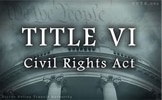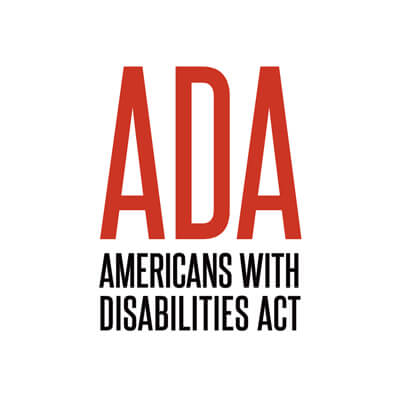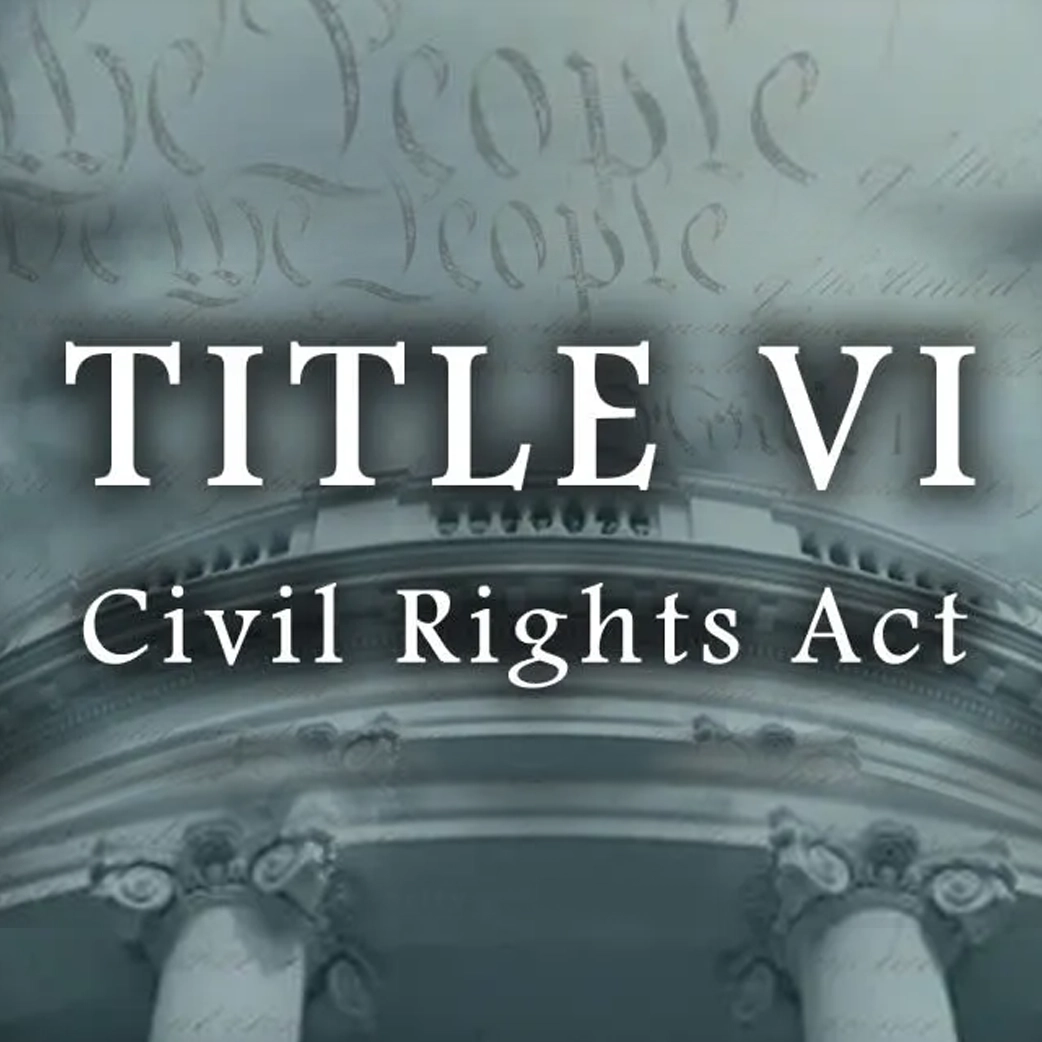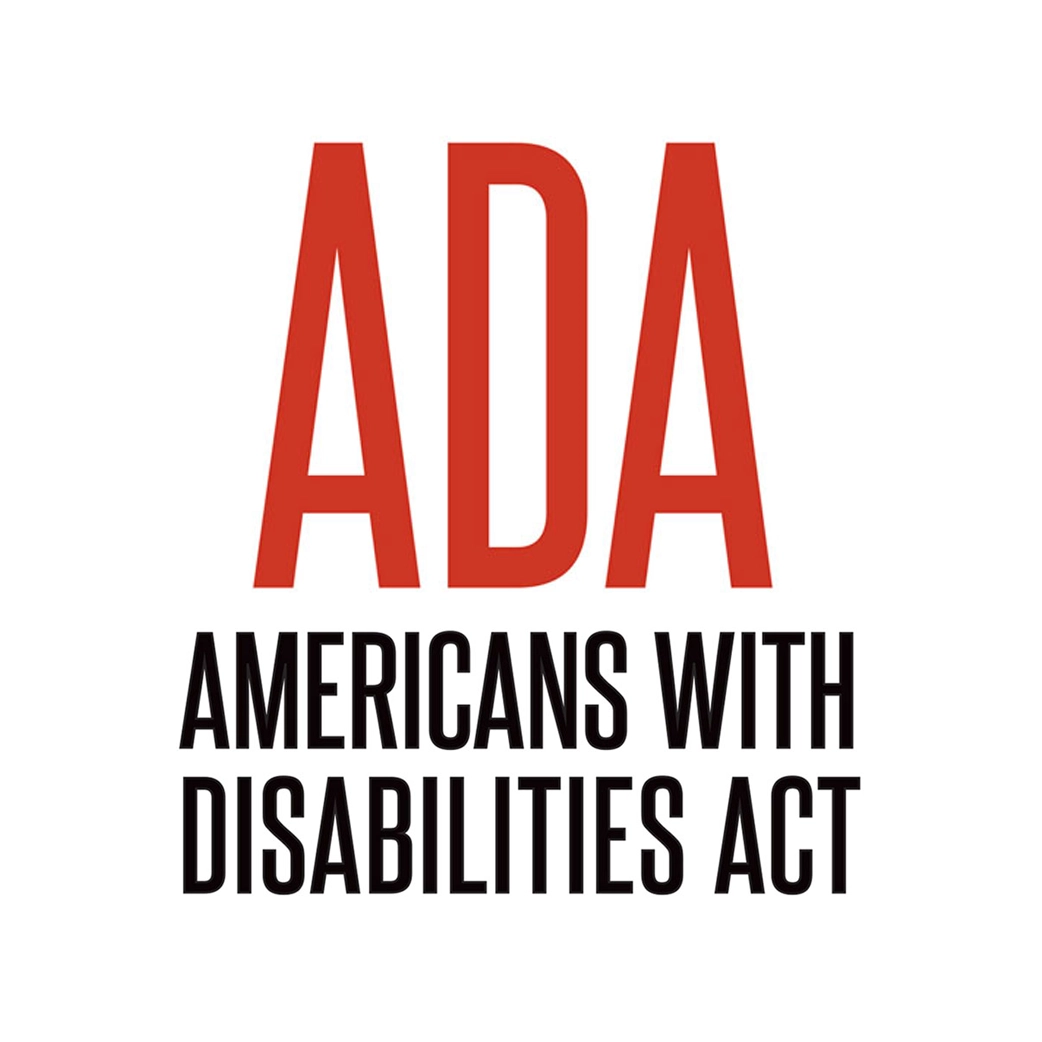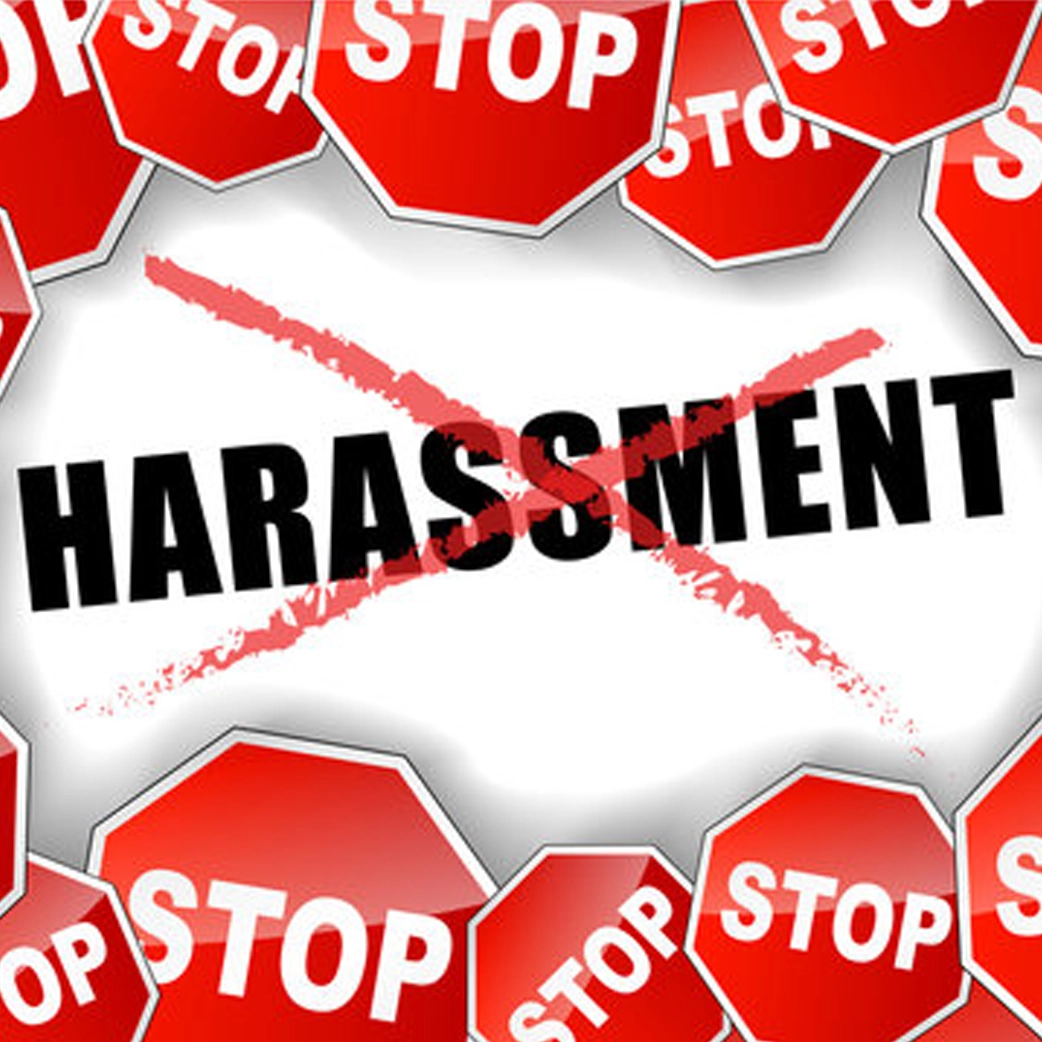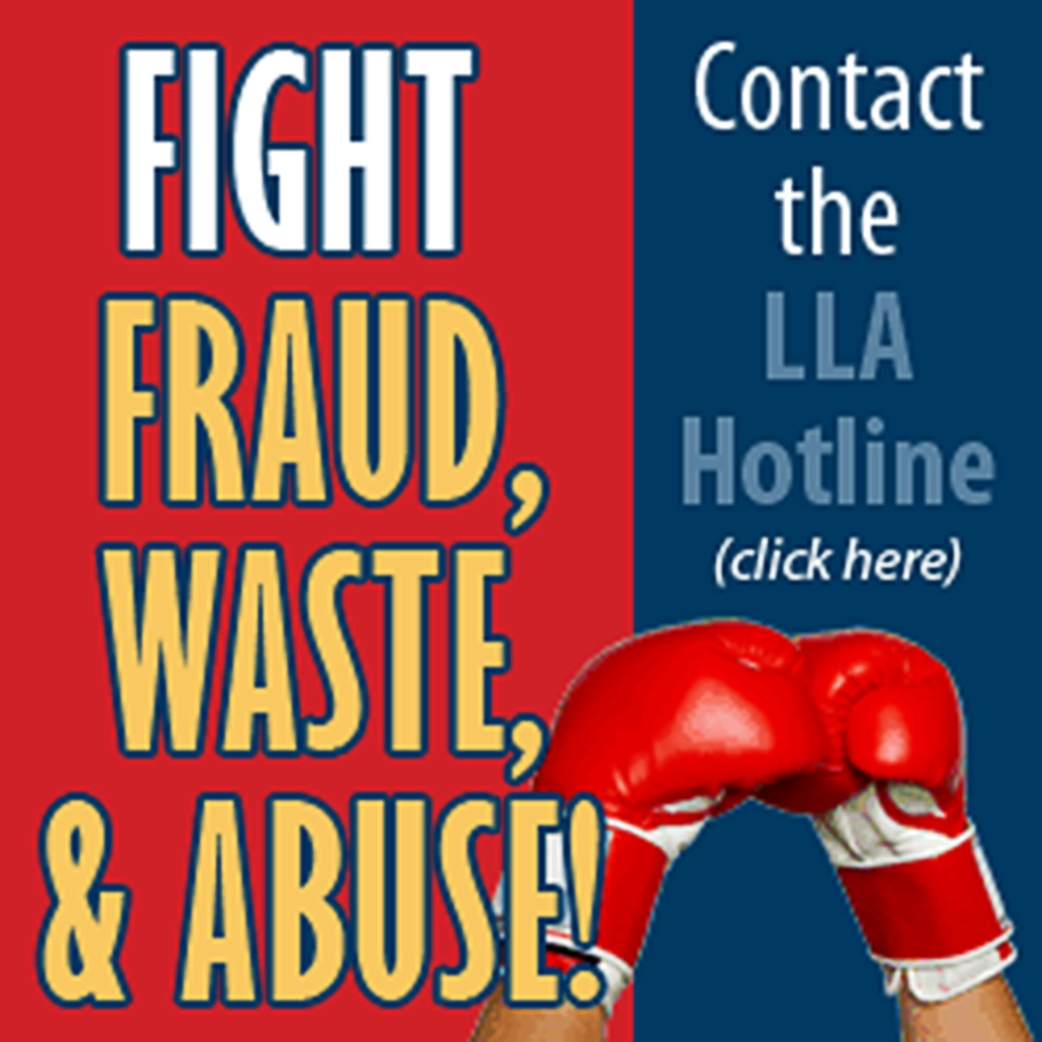Animal Services Ordinances
“AN ORDINANCE TO SUPPLEMENT, AMEND, REVISE, ENACT AND RE-ENACT ARTICLE IV OF CHAPTER SEVEN (7) OF THE TANGIPAHOA PARISH CODE OF ORDINANCES ENTITLED ANIMAL CONTROL”
WHEREAS, the Director of Animal Control has recommended changes to Article IV of Chapter 7 of the Tangipahoa Parish Code of Ordinances;
THEREFORE, BE IT ORDAINED by the Tangipahoa Parish Council, the legislative branch of parish government, which along with the Parish President of Tangipahoa Parish, Louisiana constitute the parish government, the said Tangipahoa Parish Council-President Government having a Home Rule form of government and acting pursuant to the authority of that Home Rule Charter which become effective on October 27, 1986 as follows:
That Article IV of Chapter 7 of the Tangipahoa Parish Code of Ordinances be and it is hereby supplemented, amended, revised, enacted and re-enacted to read as follows:
ARTICLE IV. ANIMAL CONTROL
SEC. 7-80. Establishment of Animal Control Department.
There is hereby established the Tangipahoa Parish Department of Animal Control.
- The Tangipahoa Parish Department of Animal Control is established and empowered to enforce all local, parish and state laws governing domesticated animals, specifically including but not limited to dogs and cats.
- The Tangipahoa Parish Department of Animal Control shall also enforce such laws and policies which have been enacted and/or established to control the over population of unwanted dogs and cats and to enforce these laws and policies which have been established to protect the health and safety of both animals and humans.
- In connection with the duties and responsibilities of the department, the department will maintain a kennel/shelter area for the humane housing of cats and dogs and is authorized to humanely euthanize animal due to injury, sickness, aggression and other temperament and behavior issues, and for the control of over population in the kennel/shelter facility.
- The department shall also establish an adoption process and shall establish procedures to locate the owners of cats and dogs found roaming at large in the parish, in an effort to reunite the owners with their pets. Additionally, the department shall work with animals rescued by recognized rescue groups that have been duly recognized as such and have been so approved by the department.
Sec. 7-81. Definitions.
The following words, terms and phrases, when used in this article, shall have the meaning ascribed to them in this section, except where the context clearly indicated a different meaning:
Abandon means to completely forsake and desert an animal previously under the custody or possession of a person, without making reasonable arrangements to provide for its proper care, sustenance, shelter and medical care.
Animal means every nonhuman species of animal, both domestic and wild.
Animal Control Shelter means any facility operated by Tangipahoa Parish Department of Animal Control or its unauthorized agents, for the purpose of impounding animals under the authority of this ordinance or state law for care, confinement, return to owner, adoption or euthanasia, by the department’s director, agents and employees. The Tangipahoa Parish Department of Animal Control has jurisdiction throughout the entire geographical area of Tangipahoa Parish including all municipalities.
Animal Control Officer means any person designated by the Tangipahoa Parish Council or its authorized agents as a law enforcement officer who is qualified to perform such duties as specified under this ordinance and the laws of this state and has received a law enforcement commission.
At Large means an animal shall be deemed to be at large if it is not under the restraint of a person capable of controlling it and off the premises of its owner or designated keeper.
Exceptions: Hunting or stock dogs, show dogs and cats, government or law enforcement dogs actively being worked or other animals being worked or shown under the physically present supervision of their owners or agents or employees of owners are excepted.
Bite means any abrasion, puncture, tear or piercing of the skin actually or suspected of being caused by an animal.
Commercial animal establishment means any pet shop, grooming shop, private shelter, commercial or private boarding, training or breeding kennel, riding school or stable, zoological park or performing animal exhibition. Veterinary medical facilities are exempt from this definition.
Commercial kennel or cattery means any premises wherein any person engages in the business of boarding, breeding, buying, letting for hire, training for a fee, or selling dogs or cats, not including veterinary hospital or clinics.
Domestic animal means a tame animal that is of a species bred, raised, and adapted to live in or about the habitation of people, and is kept by people for pleasure or utility, excluding any animal otherwise classified here as wild or exotic.
Exotic animal means all species of vertebrate animals not naturally occurring, either presently or historically, in the United States, including hybrids thereof.
Feral means a domestic species of animal which has reverted to or which exists in an untamed state and is unsocialized to humans.
Owner means any person, partnership, corporation, company or other legal entity having the right of property or custody of an animal or who keeps harbors, or knowingly permits an animal to remain on or about his/her/their/its premises and therefore herein shall be deemed the owner of the animal.
Public nuisance means any animal that unreasonably annoys humans, endangers the health, safety or life of other animals or persons, or substantially interferes with the rights of citizens, other than their owners, to enjoyment of life or property. The term “public nuisance animal” shall mean and include, but is not limited to, any animal that:
- Is repeatedly found at large.
- Damages the property of anyone other than its owner.
- Molests or intimidates pedestrians or passersby.
- Chases motor vehicles.
- Excessively makes noises of such loudness, intensity and duration as to prevent or interfere with a person’s ability to enjoy his property, when that person is in close proximity to the premises where that animal is kept or harbored, including but not limited to, situations where:
- On more than one occasion has awakened the complainant up from sleep; or
- Continues in such a manner so as to cause mental anguish or suffering, loss of sleep or a disturbance of the peace.
Such noises include but are not limited to: continued and repeated howling, barking or whining.
- Is kept or harbored in unsanitary conditions in enclosures or surroundings such that the conditions interfere with another person’s enjoyment of his/her/their/its property and/or poses a threat to public health and/or comfort.
- Is offensive or dangerous to the public health, safety or welfare by virtue of the number and/or types of animals kept or harbored.
- Attacks, bites or injures other domestic animals without adequate provocation.
- Scratches on or digs into or eliminates/defecates upon lawns, shrubs, buildings or any property either public or private other than the property of the owner or keeper of the animal.
- Is found to be a public nuisance as declared by the animal control officer after an investigation is made following a complaint of bad behavior.
Restraint means secured by a leash or lead and under the control of the owner, trainer, or designated keeper and obedient to that person’s commands, or within the real property limits of its owner or designated keeper.
Severely injured means any animal which because of major trauma, broken bones, blood loss or other easily apparent life-threatening condition, will not be expected to live and is in severe pain or suffering.
Stray animal means any animal that is found to be unsupervised and/or roaming freely upon a public street, alleyway, highway, common or public square which is found, observed or impounded while at large or secured by a complainant and not physically wearing a rabies license tags or other means of readily visible identification.
Tangipahoa Parish Department of Animal Control (“animal control department:) means a law enforcement department established under the authority of Tangipahoa Parish Council in conjunction with the Tangipahoa Parish Sheriff for the purpose of enforcing the parish animal control ordinance and other pertinent laws pertaining to animals, thereby protecting animals and preserving public health and safety. The animal control shelter and all department employees are included in this definition.
Terminally ill means any animal that, because of apparent sickness or physical condition, is not expected to live and is in dire physical distress.
Veterinary hospital means any establishment for surgery, diagnosis and treatment of diseases and injures of animals which is privately maintained and operated by a licensed veterinarian.
Vicious animal means any animal that attacks, bites or injures humans or domestic animals without adequate provocation.
Wild animal means any living member of the animal kingdom, including those born or raised in captivity, occurring naturally either presently or historically within the boundaries of the United States except humans, domestic dogs (excluding hybrids with wolves, coyotes or other non-domestic canis), domestic cats (excluding hybrids with ocelots, margays, or other non-domestic felines), livestock, commonly domesticated cavies (guinea pigs), domesticated strains of mice, rats or gerbils, domesticated members of the species Oryctolagus cuniculus (rabbits chinchillas) domestic ferrets, and captive—bred species of common cage birds.
The animal control officer or recognized designees shall enforce the provisions of Article IV of Chapter 7 of the Tangipahoa Parish Code of Ordinances pertaining to the animal control department. Such officers shall or recognized designees shall have police powers to:
- Issue misdemeanor citations for the enforcement of Article IV or Chapter 7 of the Tangipahoa Parish Code of Ordinances as well as take action necessary to enforce state statues regarding animal cruelty and/or other pertinent state animal laws.
- Obtain warrants for such violations and assist other law enforcement personnel in making arrests for such violations and obtain search warrants and execute them.
- Submit affidavits to the courts and testify in court regarding such violations.
- The animal control department shall be empowered to order the removal of all animals inadequately confined and/or confined in such a way as to constitute a public nuisance until such time as the owner comes into compliance. The animal control department shall be entitled to charge a reasonable boarding fee for any such animals held at the shelter.
- If an animal if left unattended in a vehicle and being so unattended subjects such animal to cruel conditions, the animal control officer shall be permitted, in the presence of at least one (1) witness to use all reasonable means, such as calling a locksmith but also including breaking a window, in order to free the suffering animal in the following circumstances, all of which must be met:
- The animal shows physical signs of heat exhaustion, convulsions or other symptoms requiring immediate attention by the officer in order to save the animal’s life.
- Prior approval of a supervisor, provided that a supervisor is readily available and obtaining the approval will not seriously impede the rescue of the animal. Prior approval is not necessary if, in the judgement of the officer, the delay in obtaining such approval would jeopardize the life of the animal.
- Reasonable attempt to contact the owner or driver of the vehicle has been attempted and was unsuccessful, unless such attempt would jeopardize the life of the animal.
- If all of the above circumstances are met, the animal control officer, the supervisor, the animal control department, and the parish shall be immune from liability for any property damage as a result of such action taken, so long as the intent was to save the animal from suffering and the damage to personal property was limited to that which was reasonably necessary.
- In the event a locksmith is called, the vehicle owner shall be liable for all charges associated with the opening of the said vehicle.
- When an animal is confined and continues without necessary food and/or water and/or proper veterinary care for more than 24 consecutive hours, an animal control officer or any other law enforcement officer may, as often as necessary, enter any place in which the animal is confined and supply it with necessary food and water, so long as it shall remain confined. If the owner or keeper of such animal does not respond within 24 hours to official notification by the animal control department relative to the animal’s abandonment or conditions, the animal control department shall seize the animal and hold it for the length of time specified in Section 7-86 of this article. This does not preclude the seizure of said animal if, in the judgement of the officer, the animal cannot continue to live in said circumstances without suffering, and/or is a threat to other animals or humans therefore due to environmental or physical factors cannot be left for 24 hours.
- When a person is charged with cruelty to animals, said person’s animal may be seized by the arresting officer and held pending final disposition of the charge. The seizing officer shall appoint a suitable custodian to care for such animal. The custodian shall retain custody of the animal for the purpose of evidence at trial subject to the order of the court unless such animal:
- Is certified by a licensed veterinarian either to be unlikely to survive until the final disposition of the case or in his/her professional judgement by reason of physical condition, should be euthanized, the court may order such animal to be humanely put to death.
- In accordance with LA.R.S. 14:102.6, any law enforcement officer who seizes dogs used in dogfighting may have them humanely euthanized as quickly as possible by a licensed veterinarian or qualified technician, as such dogs have been declared by the legislature contraband which is vicious, dangerous and a threat to public health and safety ipso facto. Such officer shall not be civilly or criminally liable for so doing.
All costs incurred in boarding and treatment for any seized animal, upon conviction of the accused, shall be borne by the person convicted. Upon a person’s conviction for cruelty to animals, is shall be proper for the court in its discretion as part of the sentence, to order the forfeiture and final disposition of any animal found to be cruelly treated. In the event of acquittal or final discharge of the case without conviction of the accused, the court shall upon demand, direct the delivery of any animal held in custody to the owner thereof.
- When a complaint is made by affidavit to any judge authorized to issue search warrants in criminal cases, that the complainant has reason to believe that an animal has been cruelly treated in violation of state and/or parish law, in any building or place, such judge if satisfied that there is reasonable cause for such belief, shall issue a search warrant to any law enforcement officer authorized to make arrests for such offenses, authorizing any such officer to make a search of said building or place and to arrest any person found in violation of laws prohibiting cruelty to animals and to seize the animal believed to be cruelly treated and to take custody thereof. This section shall not be construed a limitation on the power of law enforcement officers to seize animals as evidence at the time of arrest, nor does it prohibit the immediate seizure of an animal deemed in the judgement of a law enforcement officer to be in verifiable imminent danger or to be a verifiable imminent threat to other animals or humans.
- The animal control department may lend assistance to the sheriff’s department or other law enforcement agency as needed in the control, seizure, and/or impoundment of livestock or other animals not directly under the primary authority of the animal control department.
Sec. 7-83. Interference with enforcement.
- It shall be unlawful for any person to knowingly hinder, resist, oppose, or injure any officer or employee of the animal control department in the performance of his/her duties.
- It shall be unlawful for any person to knowingly interfere with or damage any humane animal trap, holding cage or vehicle owned or used by the animal control department or to molest or release an animal contained within.
Sec. 7-84. Complaints.
- Complaints regarding animal cruelty, vicious animals, dogfighting or bestiality can be processed based upon an anonymous complainant. All other complaints shall require the complainant’s name, physical and mailing address and telephone number.
- As a matter of policy, the animal control department investigates complaints regarding the unsanitary housing of animals, which may be required to be in writing, stating what the problem is, how it is affecting the complainant, the owner’s or keeper’s physical address, and the name, physical and mailing address and telephone number of the complainant. Upon receipt of complaint, the animal control department may dispatch an officer to the address of the owner or keeper advising such person of the complaint and requesting abatement. A warning notice will be left as documentation. If the complainant makes another such complaint which is received by animal control within 15 days of the previously issued warning notice, an animal control officer will be dispatched to the house of the owner or keeper to issue a citation or summons regarding the violation.
- The animal control department investigates complaints regarding excessive noise, which may be required to be in writing, as to how it is affecting the complainant, the owner’s or keeper’s address, and the name, address and telephone number of the complainant. Upon receipt of the complaint, the animal control department may dispatch an officer to the address of the owner or keeper advising such person of the problem. A warning notice will be left as documentation. A citation or summons will be served to the owner of the offending animal if:
- The animal control department receives at least two (2) sworn complaints addressing the problem or;
- The animal control officer or agent witnesses the offending noise making and judges it to be excessive.
After issuing the misdemeanor citation, the said citation shall be forwarded to the appropriate justice of the peace or other court of competent jurisdiction for criminal prosecution.
- A complainant’s name, address and/or phone number shall not be given out over the telephone.
- The animal control department shall charge a reasonable fee for a copy of any departmental complaint or impoundment record or other records, and a receipt shall be given to the person requesting information.
Sec. 7-85. Restraint.
- Every dog shall be properly restrained and/or adequately supervised by the owner, trainer or designated keeper both on and off the premises of the owner so as not to become a public nuisance or be defined as stray.
- After a complaint or sworn statement by an individual, it is the duty of the animal control officer or his/her designated agents to investigate a potential public nuisance animal and render a decision as to the validity of such complaint. Any such animal found to be a public nuisance as defined by this ordinance may be seized by the animal control department or its designated agents and impounded at the animal control shelter. Any animal so impounded shall not be released until adequate assurance has been made that the conditions causing the animal to be declared a public nuisance have been corrected to the satisfaction of the animal control director. The owner of such animal may be penalized as provided for in Section 7-102 of this ordinance. In the event of a nuisance by defecation, the owner or designated keeper must remove all feces and dispose of it in a sanitary method. The owner of designated keeper of an animal deemed a public nuisance shall also be responsible for any destruction/damage to persons, properties or belongings for which the animal was responsible in causing.
- Every animal declared dangerous or vicious shall be confined by the owner or designated keeper within a building or secure enclosure. The owner or designated keeper shall prominently post a sign warning of the animal. Every animal declared dangerous or vicious shall be securely muzzled or caged whenever off the premises of its owner or designated keeper. Any animal found at large after written notice has been served declaring it dangerous or vicious shall constitute a public nuisance and shall be promptly impounded.
- Should any nuisance, dangerous or vicious or stray animal escape from the animal control officer during pursuit or after having been caught and enter the premises of the owner, designated keeper or any other person and such owner, keeper or other person refuses to deliver the animal to the animal control officer or designated agent, such owner, keeper or other person shall be subject to penalties provided for in Section 7-102 of this ordinance.
- Nothing in this section shall prevent any citizen from lawfully hunting with a dog, provided that the dog is accompanied by its owner or designated keeper in a manner which is generally acceptable and reasonable given the type of hunting actively being pursued by the accompanying owner or designated keeper.
- Owners and designated keepers shall not permit dogs in their care on any school ground when school is in session, or on any public recreation area when an organized activity is being conducted, unless the dog is restrained by a leach or similar device which prevents the dog from biting a person or animal.
- Every female dog or cat in heat shall be confined so that the animal cannot come into contact with an unneutered male except for planned breeding.
Sec. 7-86. Impoundment and violation notice.
- Stray and/or public nuisance animals shall be taken in by the animal control officer or his agent or other law enforcement personnel and impounded at the animal control shelter and there confined in a humane manner.
- Any animal control officer or agent in hot pursuit of any animal may follow said animal onto private property to seize such animal if said animal is in the judgement of said officer deemed a nuisance or a threat to public health or safety.
- If any animal deemed a threat to public health or safety is seize by the owner or keeper and put inside a place of residence to prevent impoundment, the following course of action may be undertaken:
- A search and seizure warrant may be obtained from a magistrate empowering a law enforcement officer to accompany an animal control officer to seize such animal.
- A warning notice notifying the owner or keeper of the above procedures can be left at the door, giving the owner 48 hours to turn the animal over to the animal control department.
- Whenever an animal has been impounded and the owner is known or can be ascertained from the registration tag or identifying collar or any other means such as a tattoo or brand, the animal control department shall, within 24 hours, attempt to advise the owner by mail or telephone or personal service of the conditions upon which the animal may be released.
- Impounded dogs and cats shall be kept for not fewer than five (5) business days, except:
- When the impounded animal is not weaned and has no mother at the time of impoundment and is considered stray or abandoned, it may be humanely euthanized as soon as possible after impoundment.
- A stray, seriously injured, diseased or terminally ill animal impounded by the animal control department may be humanely euthanized as soon as possible. Euthanasia shall only be performed after a decision is made by the impounding officer and supervisor or director if in the shelter, or by the impounding officer solely if in the field.
- A dog and cat which, in the judgement of the kennel manager or designee and a supervisor, appear to be feral may be humanely euthanized.
- An animal surrendered to the animal control department by an owner executing the appropriate signed release becomes the property of the animal control department at the time the release is signed.
- All other animals except dogs and cats, may be held for a period of time as determined by the director of the animal control department before disposing of said animal.
- The animal control shelter shall not accept or hold animals from other parishes.
- Any owner reclaiming an impounded animal shall pay a reclamation fee as set by the animal control department. Owners of impounded animals who cannot produce proof of rabies vaccination will be required to pay fees and/or fines as established by state law and/or the animal control department and to have the animal vaccinated for rabies by a licensed veterinarian. In addition, the owner will reimburse the animal control department for any costs incurred for emergency veterinary medical care.
- Any animal not reclaimed by its owner within five (5) business days shall become the property of the animal control department, which is then authorized to determine the disposition of the animal in accordance with state law. In the instance of an owner who has surrendered the animal by the execution of an appropriate signed release form, the animal is the property of animal control department immediately upon completion of such release. Any owner who wishes to reclaim an animal after the execution of such release shall have no claim on the animal and shall be subject to all policies, procedures and fees governing animal adoptions to the general public.
- In addition to or in lieu of impounding an animal found at large, the animal control officer or other law enforcement officer may issue to the known owner of such animal a misdemeanor citation of ordinance violation.
- All fees and costs associated with redemptions shall be payable in cash, cashier’s check, personal check, money order, credit card or debit card.
- The owner of an impounded animal may also be proceeded against for violation of this ordinance.
- The animal control department shall keep complete and accurate written or computerized records of the care, feeding, veterinary treatment and disposition of all animals impounded.
Sec. 7-87. Rabies control.
- It shall be unlawful to own, keep, harbor, or maintain an animal over the age of three (3) months in the Parish of Tangipahoa without having the animal vaccinated against rabies on a one to three-year period based upon the vaccine used. The owner may take the animal to a licensed veterinarian of choice for all required vaccinations.
- All owned, vaccinated or unvaccinated dog and cat bite cases shall result in the animal being held for ten (10) days observation.
- Stray dog and cat bite cases may be sacrificed for immediate examination or held for ten days observation at the discretion of the animal control department.
- Any wild or exotic animal, provoked or unprovoked, that bites a human shall be disposed of as follows:
- The animal shall be euthanized and the head sent off for rabies testing.
- The animal control department shall deliver said wild or exotic animal head to the appropriate authority for testing.
- A wild or exotic animal that is found dead after biting a human shall be impounded and the head shall be sent to the appropriate authority for testing.
Exception: The animal control department may consider a six-month to one-year rabies quarantine for rare, endangered or threatened or other exotic or wild animals if the following criteria are fully met.
- A letter received from a licensed veterinarian requesting observation rather than euthanasia.
- The victim agrees to the observation of the animal rather than euthanasia. Parents or legal guardians may act on behalf of the minors.
- The owner and/or possessor shall agree to indemnify and hold harmless the animal control department and Tangipahoa Parish.
- The animal was bred and raised in captivity.
- The animal was licensed according to all federal, state or local laws.
- The six-month holding period shall be considered a minimum time period.
- After the observation period, a licensed veterinarian can release the animal and the animal control department will be notified in writing.
- Animals shall be quarantined under conditions as required by the animal control department and the veterinarian involved.
- All bite cases occurring within the limits of this parish shall be reported to the animal control department or other designated agency as soon as possible and in no case more than 24 hours after the bite. The animal control officer or designated agent is herewith authorized and empowered to enter the premises in order to make any inspection or examination of said animal. It shall be the duty of the animal control department or designated agent to impound or cause to be impounded any such animal for a period of ten (10) days for observation either in the hospital facilities or a licensed veterinarian or at the animal control shelter. In addition, home confinement of an animal may be allowed only if all three of the following conditions are met:
- Proof of current rabies vaccination by a licensed veterinarian is produced.
- Specific approval by the animal control director must be obtained.
- The owner must sign a document containing an indemnity clause holding the animal control department and Tangipahoa Parish harmless from any and all liability which might arise while the animal is undergoing in home observation.
If home confinement is agreed upon, it shall be the duty of the animal’s owner to immediately notify the animal control department if the animal shows any symptom of sickness or abnormal behavior or escapes or dies during confinement. If the animal dies, the owner shall surrender the carcass to the animal control department or designated agency for the purpose of rabies testing. If the animal control department observes any violation of this exception, the animal shall then be seized and taken to the animal control shelter or a licensed veterinary facility; and the owner may be issued a notice of violation of this part.
- This section shall not apply except in the discretion of the animal control director and/or designated agent to such small caged pets as mice, rats, gerbils, hamsters, rabbits or guinea pigs and any other animal that may be specifically excluded by the animal control department.
- Should any animal undergoing the ten (10) day observation period for having bitten a human show indication of rabies, it shall be the duty of the animal control department and/or designated agency to destroy such animal after confirming diagnosis by a licensed veterinarian. The animal control department, working in conjunction with the parish health until shall send the head of such animal to the Bureau of Laboratories of the State Department of Health for a rabies laboratory test;
- Any animal impounded or confined for rabies quarantine shall be released upon completion of the ten (10) day observation period only upon authorization of the animal control department and/or designated agency. Any such animal must have a validated current rabies vaccination before it is released.
- If any animal is suspected of having been exposed to rabies, all persons having knowledge of such condition or event shall have a duty to surrender such animal to the animal control department and/or designated agency. The animal control director shall decide if such animal should be impounded, confined, quarantined, humanely destroyed or released.
- No person shall fail or refuse to surrender an animal for supervised quarantine, confinement or humane destruction as required by this section for rabies control when deemed advisable by the parish animal control department and/or designated agency.
- The new owner of any animal three (3) months of age or older adopted from the animal control shelter is required to have that animal vaccinated for rabies by a licensed veterinarian unless said animal has proof of a current vaccination.
- Any animal that is held for bite quarantine shall be picked up by the respective owner on the eleventh (11th) day. The animal shall become the property of the Tangipahoa Parish Animal Control on the twelfth (12th) day.
Sec. 7-88. Care of animals.
- It shall be unlawful to be cruel or inhumane to any animal. Such cruelty or inhumanity shall include, but not be limited to, beating, torturing, overloading, over driving, mutilating, failure to provide adequate feed, adequate water, shelter, medical care, abandoning an animal, poisoning an animal, or killing an animal in such a way that unnecessary suffering is caused.
- No person shall cause, instigate or permit any combat between animals and humans, unless all of the following conditions are met:
- Such combat takes place as an exercise within a recognized sanctioned animal training program, such as the training of police dogs guard dogs, or during the course of schutzhund training.
- The person whom the animal attacks or threatens is a willing participant.
- The animal is not subjected to cruel treatment in the course of the instigation of the combat.
- Any person who as the operator of a motor vehicle strikes a domestic animal shall stop at once and attempt to report such injury or death to the animal’s owner. If the owner of the animal cannot be ascertained and located, such operator shall at once report the accident to the animal control department or other appropriate law enforcement agency.
- It shall be unlawful for any person to release or entice any animal secured by the owner or keeper within his yard outside of the premises of such owner or keeper.
Sec. 7-89. Animal waste.
The owner of every animal shall be responsible for the removal of any excreta deposited by his animal on public walks, public lands, recreation areas, or private property.
Sec. 7-90. Sterilization of adopted animals.
As a matter of public policy, all dogs and cats adopted from the animal control shelter shall be sterilized prior to release to an adopter or as required in the adoption contract signed by an adopter, as required by state law. Failure of an adopter to have the animal sterilized shall be considered a breach of contract and may result in legal action to seize the animal and to collect penalties.
Sec. 7-91. Veterinary care.
Medical and surgical care for impounded animals shall be provided for by a veterinarian holding a current Louisiana veterinary license. In addition, the veterinarian must be an owner of, an operator of, or employed by a veterinary facility doing business with in the jurisdiction of the parish but separated from the parish animal control shelter. Exceptions:
- Euthanasia properly performed by a certified animal euthanasia technician holding a current valid Louisiana license as provided by certification in accordance with the Louisiana Board of Veterinary Medicine, the Louisiana Department of Health and Hospitals, and the United States Drug Enforcement Administration.
- Proper use of approved immobilization drugs which are not controlled substances (ketaset, acepromazine) by trained department personnel.
- Preventative vaccinations given to animals which are the legal property of the animal control department, excluding rabies vaccinations or any others which must be administered by a licensed veterinarian according to state law.
- Basic first aid or palliative care performed by members of the animal control department for minor injuries or illnesses, including that given under the general direction of a veterinarian and that given until skilled veterinary treatment can be provided.
Sec 7-92. Optional licensing of dog and cats.
- Any person owning, keeping, harboring or having custody of any dog or cat over six (6) months of age within this parish may obtain a license as provided in this section. This provision shall not apply to animals held for resale or temporary boarding by commercial animal establishments.
- For this optional licensing of dogs and cats, a written application for license, which shall include the name and address of the applicant, a description of the animal, the appropriate fee, and a rabies certificate issued by a licensing authority, shall be submitted to the animal control department.
- Licenses for the owning, keeping, harboring or custody of dogs and cats pursuant to this section shall be for a period of one (1) or two (2) years.
- Licenses fees shall not be required for certified seeing eye dogs, hearing ear dogs, governmental or police dogs, or other certified dogs that are trained to assist the physically handicapped.
- Upon acceptance of the license application and fee, the licensing authority or its agent shall issue a metallic tag stamped with an identifying number, the issuing authority and the year of issuance. The tags shall be fastened to the animal’s collar or harness.
- The issuing authority shall maintain a record of the identifying numbers of all tags issued and shall make this record available to the public upon request.
- A license shall only be issued after payment of the application fee which shall be determined by the animal control center.
- A duplicate license may be obtained upon payment of a replacement fee of $2.00.
- No person may use any license for an animal other than the animal for which it was issued.
- Should an animal that is currently licensed be impounded, the owner shall be exempt, for the first occurrence of impoundment from daily customary board fees for the first 72 hours of impoundment. However, the owner or keeper of such animal shall pay all relevant fines and penalties pertaining to the reason for such impoundment prior to release of the animal to the owner.
Sec 7-93- Reserved
Sec. 7-94. Multiple impounds.
Any animal that is impounded two (2) times in a six (6) month period shall be micro chipped and licensed at the owner’s expense in addition to all applicable fees and fines.
Any fertile animal that is impounded two (2) times in a six (6) month period shall be spay/neutered at the owner’s expense in addition to all applicable fees and fines.
Sec. 7-95. Attack of a leashed animal.
It is hereby declared that it shall be illegal for any at large animal to attack an animal that is on a leash accompanied by a person.
The owner of an animal that is roaming at large and attacks an animal that is on a leash while accompanied by a person shall be subject to penalties, as follows:
First offense – $100.00 plus all applicable fees and fines.
Second offense – $200.00 plus all applicable fees and fines and the animal will be taken before the courts for a determination of whether the animal is dangerous or vicious.
In the event of the attacked animal being killed the fine will be $250.00 in lieu of the above plus all applicable fees and fines. The at large attacking animal shall be taken before the courts for determination of either dangerous or vicious.
Sec. 7-96. Dog, cat kennel license fee and certificate; records.
The owner or keeper of ten (10) or more cats or dogs shall procure a yearly kennel license from the Tangipahoa Parish Animal Control Department and shall pay a kennel license fee as adopted by the Tangipahoa Parish Animal Control Department and approved by the Tangipahoa Parish Council. A licensed veterinarian or a veterinary clinic shall be exempt from the provisions of this section while in the conduct of the veterinarian or clinic’s regular business.
Upon the issuance of a kennel license pursuant to this section, the kennel owner shall be furnished a number of license tags equal to the number of animals harbored on the kennel premise.
In connection with the kennel license, the Tangipahoa Parish Animal Control Department shall issue a metallic license tag as aforesaid. This license tag shall contain a license number, the name of the Tangipahoa Parish Animal Control Department and the calendar year for which this tag is issued. This tag shall be fastened upon the collar worn by the dog or cat owned or kept by such person. A license certificate shall also be issued for such license showing the name and address of the owner or keeper, a description of the dog or cat by sex and color, the breed of the dog or cat, if known and the year and number of the license tag. A record of all such information shall also be kept by the Tangipahoa Parish Animal Control Department and this record shall be open to the public during regular business hours.
Sec. 7-97. Inspection.
Any individual or business required to purchase a kennel license, having ten (10) or more cats and dogs, and who breeds and sells wholesale or retail and/or who rescues and/or serves as a sanctuary and is therefore required to have a kennel license shall make the facility available for inspection by the Tangipahoa Parish Animal Control on Monday through Friday between the hours of 8:00 o’clock a.m. and 4:00 o’clock p.m.
- With no prior problems, complaints or violations then up to two (2) random and two (2) scheduled inspections annually.
- With prior problems, complaints or violations then up to one (1) random or scheduled inspection per month.
Sec. 7-98. Limitation on size of operation.
No individual or business that breeds, buys, rescues or sells dogs at retail or wholesale shall maintain more than forty (40) dogs over the age of one (1) year at any time.
Sec. 7-99. Disaster declaration operations.
- In the event of a disaster declaration by the Tangipahoa Parish President, to the extent of its capacity to do so, the Tangipahoa Parish Animal Control Department shall provide shelter to cats and dogs whose owners are housed at emergency shelters itself.
- The owner or owners of these cats and dogs housed with the Tangipahoa Parish Animal Control Department as a result of a disaster shall incur normal parish fees for each day that the animal is held plus reimburse the Tangipahoa Parish Animal Control Department for any veterinarian or other necessary expenses. These fees and charges must be paid in full prior to the release of the animal to its owner.
- The owner or owners of these cats and dogs housed with Tangipahoa Parish Animal Control Department shall retrieve their animals within ten (10) days of the closure of the shelter housing the owner or owners of the animal or animals sheltered by the Tangipahoa Parish Animal Control Department. Any animal that is unclaimed eleven (11) days after the closure of the shelter or in the case of rescued animals then eleven (11) days after the closure of the last emergency shelter in Tangipahoa Parish shall thereafter become the property of the Tangipahoa Parish Council-President Government and its Tangipahoa Parish Animal Control Department and without further notice.
Sec. 7-100. Exotic prohibited.
No person shall own, possess, sell, or keep any wild (other than what is permitted by the state) or exotic animal as a “pet” in the parish. Exotic animals are all species of vertebrate animals not naturally occurring in any ecosystem in the United States, including hybrids thereof, including, but not limited to, lions, tigers, leopards, hyenas, primates, bears, elephants, bison, antelopes, deer or poisonous snakes. This section does not apply to zoos or wildlife preserves.
Sec. 7-101. Tethering Restriction.
Any animal that is tied or tethered, will need to be placed on a tie-out cable and pivoting stake with a properly fitting collar or harness. No chains are allowed. The cable will need to be no shorter than 10 feet and not in a manner that will allow it to reach within the property of another person, a public walkway, or a road. The cable will need to be the appropriated size for the dog with a proper fit. Any member of the Tangipahoa Parish Animal Control will have the authority to enter the property or location to check the condition of the cable and collar or harness.
Sec. 7-102. Penalties for violation of ordinance.
- The animal control department shall, with the approval of the Tangipahoa Parish Council, set reasonable fees for charged services.
- Fines to satisfy ordinance violations for which a citation has been issued shall be payable to the animal control department within 72 hours in full satisfaction of the assessed penalty. If such fine is not paid within the period prescribed, a criminal warrant may be initiated before a magistrate. Any person who violates any provision of this article which results in a criminal warrant and conviction shall be fined not more than $500.00 or imprisoned for not more than six (6) months or both at the discretion of the court. Any person who hinders molests, interferes with or injures any officer or agent of the animal control department in the performance of any duty provided for by this article shall, upon conviction by a court of competent jurisdiction, by fined not more than $500.00 or imprisoned for not more than six (6) months or both, at the discretion of the court or prosecuted under state law pertaining to the injury of an officer performing his duty.
- If a violation continued, each day’s violation shall be deemed a separate violation.
- Nothing in this section precludes the conviction of an individual under state law nor does it preclude the penalties exceeding those under the ordinance which such conviction may bring.
IT IS FURTHER ORDAINED by the Tangipahoa Parish Council that this ordinance, having been duly introduced, having been the subject of a public hearing and having been passed into law thereafter be promulgated by publication of notice of its passage along with a complete copy of the ordinance in the official journal of the Tangipahoa Parish Council-President Government and after thirty (30) days from this publication, it shall take effect and be in full force and effect.
The above and foregoing ordinance having been duly submitted to the Tangipahoa Parish Council in writing; introduced at a public meeting of the Tangipahoa Parish Council; discussed at a duly scheduled and noticed public hearing; after motion and second was submitted to the official vote of the Tangipahoa Parish Council.




